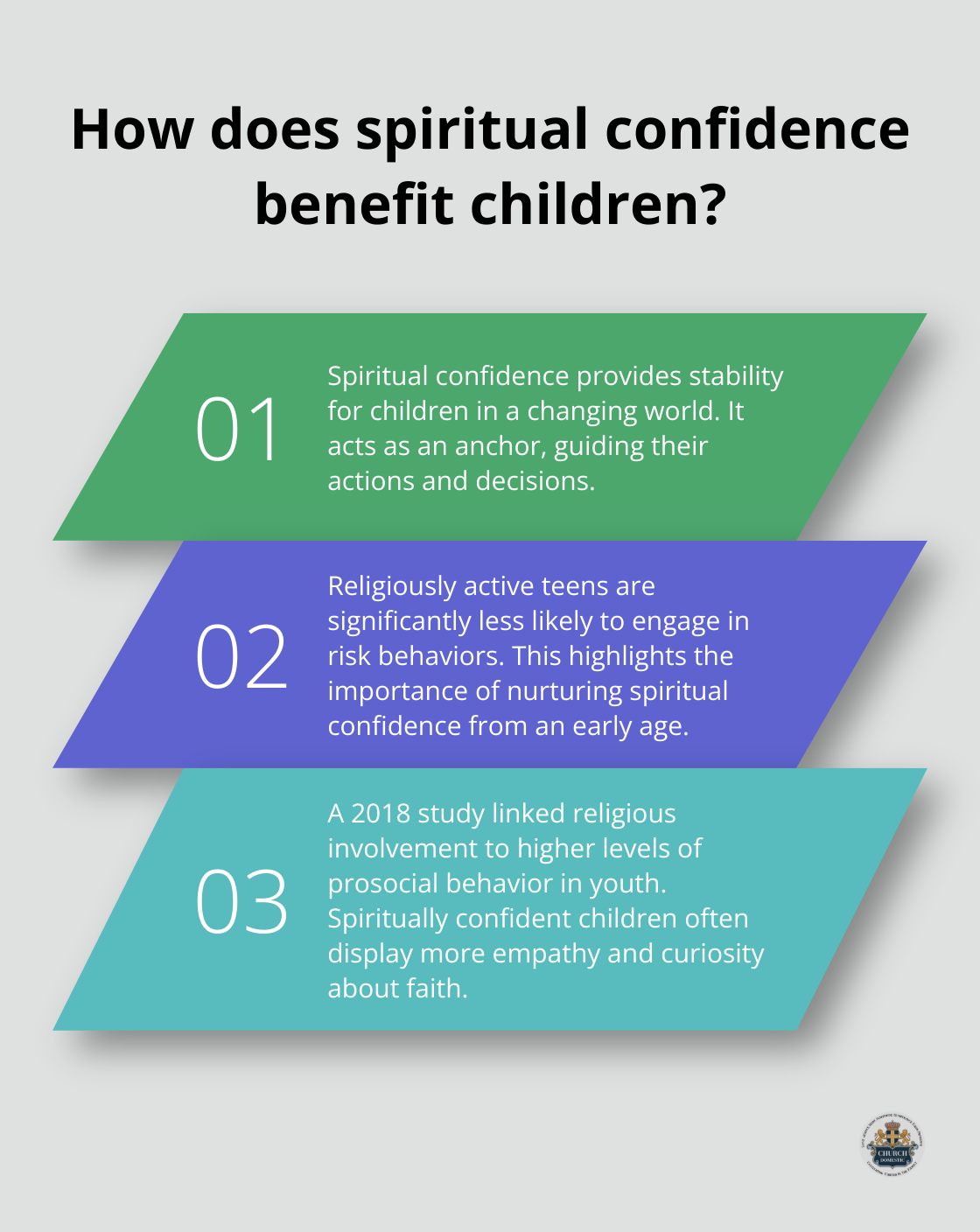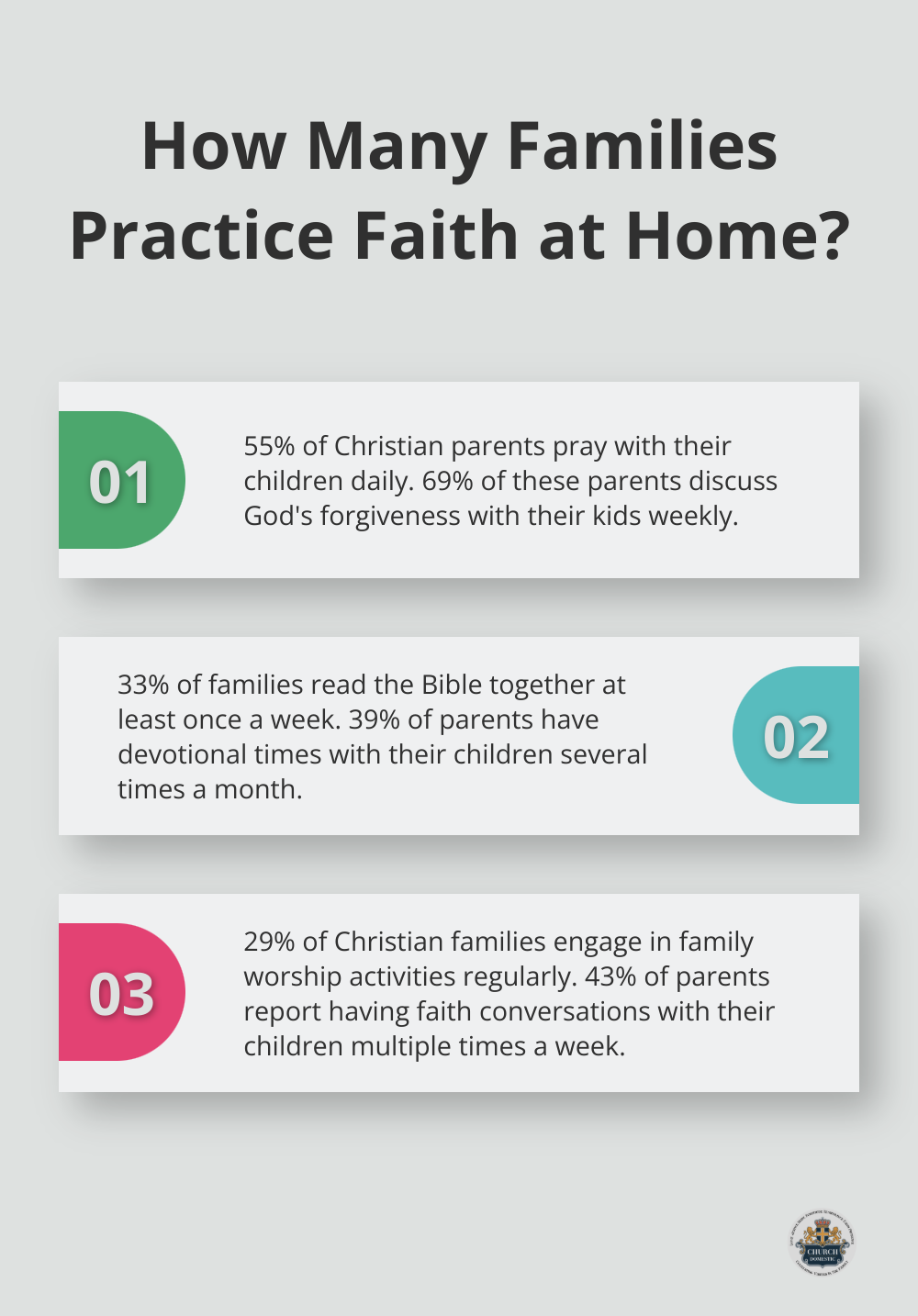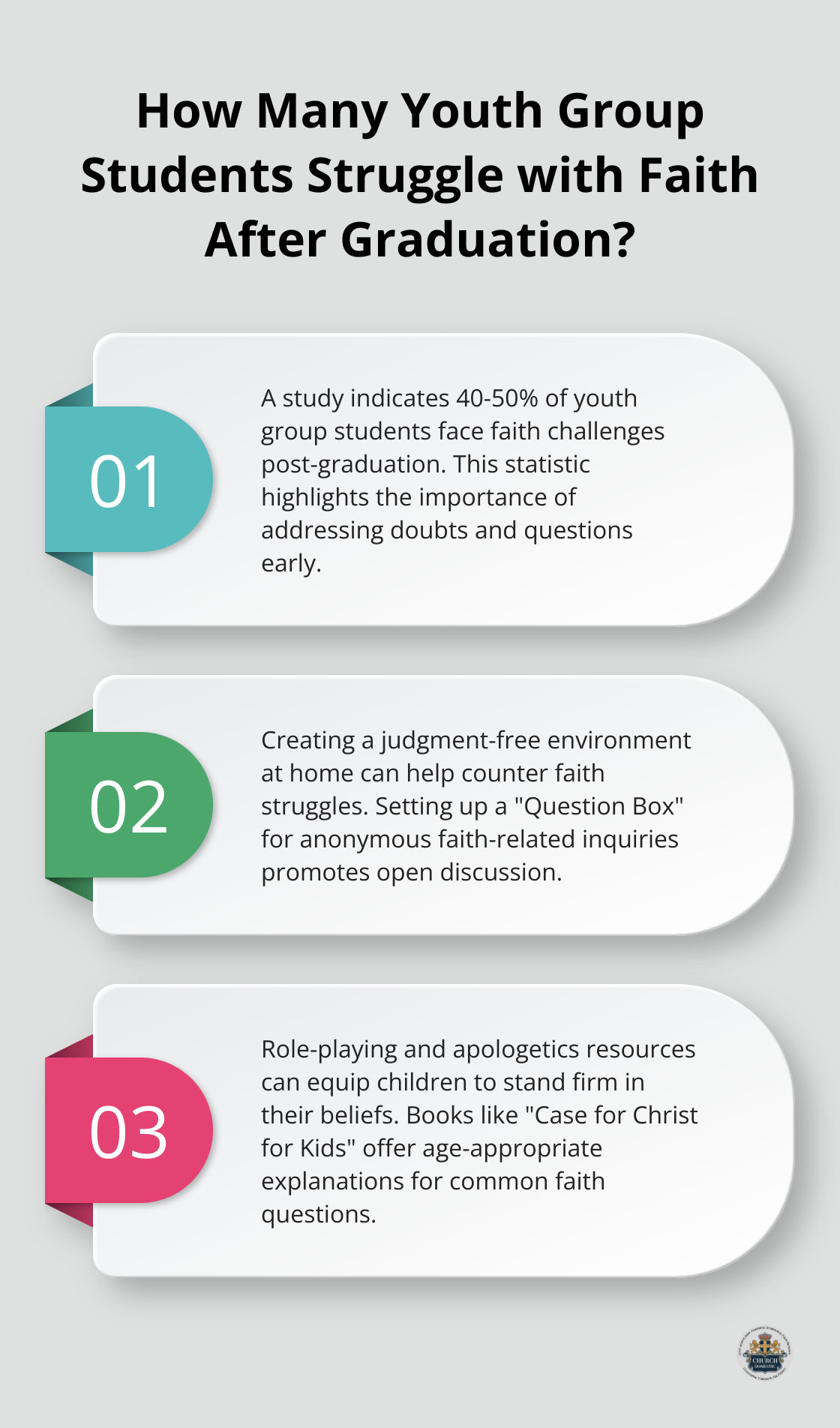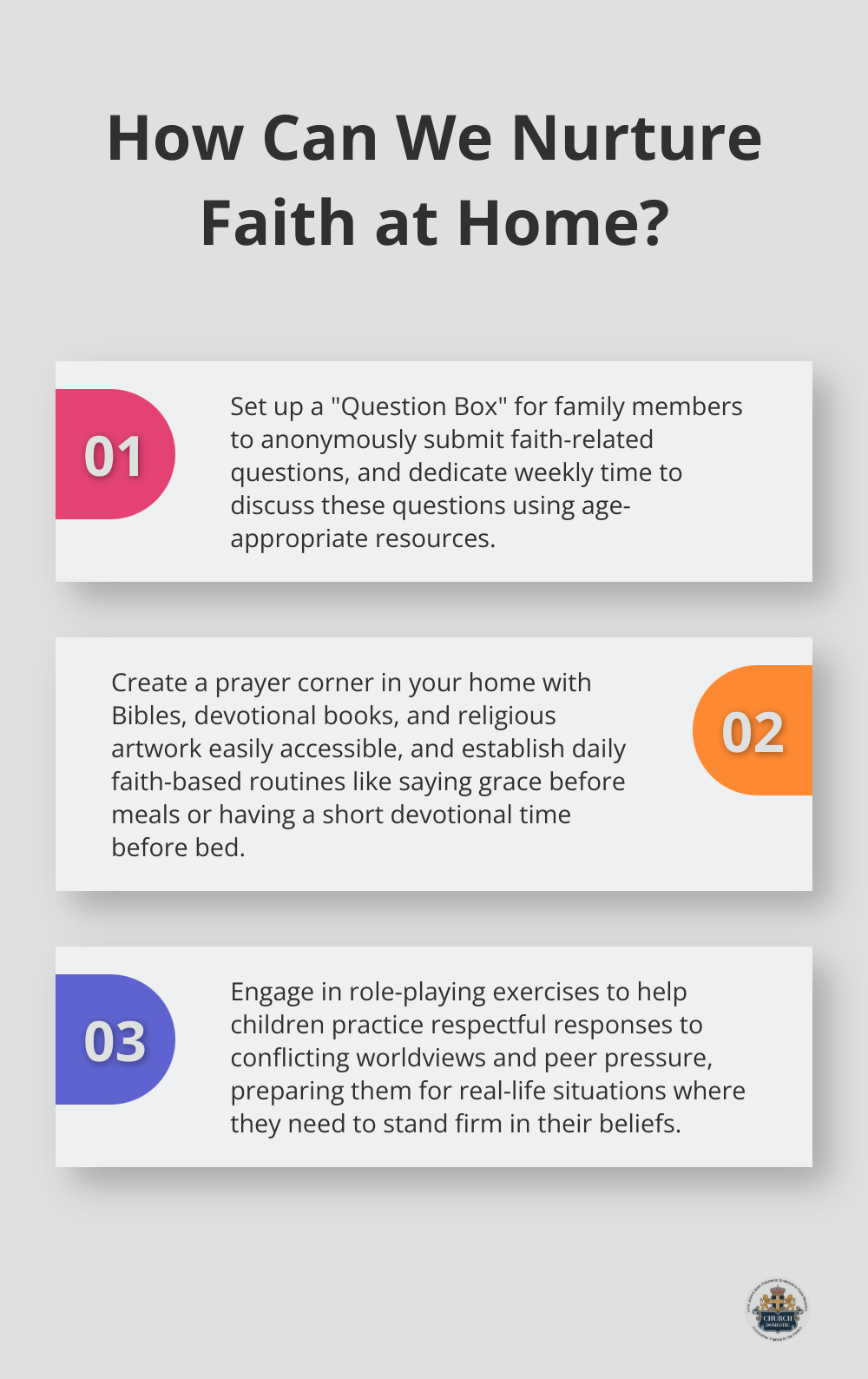Spiritual parenting is a profound journey that shapes the hearts and minds of our children. At Church Domestic, we believe in equipping parents with the tools to nurture their children’s faith effectively.
This guide will explore practical strategies for creating a spiritually rich home environment and navigating the challenges that arise along the way. By mastering these techniques, you’ll be better prepared to raise children who are grounded in faith and ready to face life’s challenges with spiritual wisdom.
Building a Spiritual Foundation at Home
Set the Tone with Your Actions
Children learn more from what they see than what they hear. If you want your kids to value prayer, let them catch you praying. If you want them to read the Bible, make sure they see you doing it regularly. A study by the Barna Group found that 58% of children who remain faithful as adults had parents who talked about faith at home.
Create Sacred Spaces
Designate areas in your home for spiritual activities. This could be a corner with a comfortable chair and a Bible, or a family altar with meaningful objects. These spaces serve as visual reminders of your family’s spiritual priorities.
Integrate Faith into Daily Life
Make spiritual discussions a natural part of your day. Use everyday situations to talk about God’s love, forgiveness, and guidance. For example, when you admire nature, talk about God’s creation. When you face challenges, discuss how faith can provide strength. Some effective daily practices for enhancing spiritual well-being through God are prayer, reading the bible, gratitude, and positivity.
Develop Your Own Spiritual Practices
Your spiritual growth is essential for effective spiritual parenting. Set aside time for personal devotions, prayer, and reflection. Join a small group or Bible study to deepen your understanding. You can’t pour from an empty cup (an old adage that rings especially true in spiritual parenting).

A survey by the National Study of Youth and Religion found that youth religious service attendance was correlated positively with parental education. Youth whose parents have a professional or graduate degree are more likely to attend religious services.
Foster Open Communication
Create an environment where your children feel comfortable asking questions about faith. Encourage curiosity and honest discussions (even when the topics are challenging). This openness will help your children develop a more personal and authentic relationship with their faith.
As we move forward, we’ll explore specific techniques to nurture your children’s faith, building on this strong foundation you’ve established in your home.
Nurturing Faith Daily
At Church Domestic, we understand the importance of consistent spiritual practices in family life. This chapter explores practical strategies to help you nurture your children’s faith effectively.
Make Prayer a Family Habit
Start and end each day with family prayer. Keep it simple and age-appropriate. For younger children, use a prayer jar filled with popsicle sticks, each bearing a prayer topic. Let kids draw a stick and lead a short prayer. For teens, try a prayer journal where family members write requests and praises.

A study by the National Study of Youth and Religion found that 80% of teens whose families pray together regularly report feeling extremely close to their parents. This simple act builds both faith and family bonds.
Bring Scripture to Life
Don’t just read the Bible; make it come alive. Use audio Bibles during car rides or while doing chores. Act out Bible stories with costumes and props. For older kids, try Bible journaling, where they illustrate verses that speak to them.
Fluent interaction between parents or teachers and preschool children may have a dynamic effect on the religious development of these children.
Foster Curiosity and Questions
Create a judgment-free zone for spiritual discussions. Set aside a weekly “Faith Q&A” time where kids can ask anything about God, the Bible, or spirituality. If you don’t know an answer, research it together.
A Barna Group study shows that 70% of young adults who left the church say they never had the opportunity to ask their most pressing faith questions while growing up. Don’t let your children fall into this statistic.
Serve Together
Put faith into action through family service projects. Volunteer at a local food bank, visit elderly neighbors, or participate in community clean-ups. Discuss how these actions reflect God’s love for others.
According to a study by the Corporation for National and Community Service, children who volunteer are twice as likely to volunteer as adults (showing the long-term impact of early service experiences).
Use Technology Wisely
Leverage faith-based apps and online resources. Try the YouVersion Bible app for kids or RightNow Media for family-friendly Christian content. Set up a family Spotify playlist with worship music for different moods and occasions.
These practices don’t need to be perfect or lengthy. Even five minutes of intentional spiritual engagement daily can profoundly impact your children’s faith journey. You’re not just teaching about faith; you model a life lived in active pursuit of God.
As we move forward, we’ll explore how to navigate the challenges that often arise in spiritual parenting, ensuring you’re equipped to guide your children through doubts and difficult questions.
Overcoming Spiritual Parenting Hurdles
Addressing Doubts and Difficult Questions
When your child asks why God allows suffering or expresses doubt about their faith, don’t panic. These questions indicate normal and healthy curiosity. Engage in open dialogue instead of dismissing their concerns. Share your own experiences with doubt and how you worked through them.

Create a safe space for these discussions by setting aside judgment-free time each week for faith-related questions.
If you don’t have an answer, admit it. Then, research together using reputable resources like Bible commentaries or consult with your pastor. This approach models humility and the importance of seeking truth.
Balancing Secular Influences
In today’s digital age, secular influences are unavoidable. Rather than creating an isolationist environment, teach your children to engage critically with media and culture. Watch movies or listen to music together, then discuss the messages and how they align (or don’t) with your family’s values.
Implement a family media plan that includes guidelines for screen time and content choices. Use this time wisely by choosing educational or faith-based content when possible.
Encourage involvement in faith-based activities outside the home. Youth groups, Christian sports leagues, or faith-based summer camps can provide positive peer influences and reinforce spiritual teachings.
Age-Appropriate Spiritual Guidance
Tailor your approach to your child’s developmental stage. For preschoolers, focus on simple concepts like God’s love and basic Bible stories. Use picture Bibles and hands-on activities to make faith tangible.
Elementary-aged children can handle more complex ideas. Introduce the concept of sin and forgiveness, and encourage them to apply biblical principles to their daily lives. Bible trivia games or faith-based board games can make learning fun.
For teenagers, explore deeper theological discussions. Address tough questions about faith and science, or examine different world religions. Encourage them to develop their own prayer life and Bible study habits.
Spiritual growth isn’t linear. Be patient and consistent in your efforts. This underscores the importance of long-term commitment to spiritual parenting.
Your efforts today lay the groundwork for a lifetime of faith for your children. Keep communication open, stay flexible in your approach, and always lead by example.
Final Thoughts
Spiritual parenting empowers you to nurture your children’s faith journey. The strategies we’ve discussed form a comprehensive approach to raising spiritually grounded children. You’ll create a spiritually rich home environment, address doubts, and lead by example.

Spiritual growth is a lifelong journey for both you and your children. Your role as a spiritual parent evolves as your children grow, but your influence remains important. Questions and doubts are part of developing a mature and authentic faith.
We encourage you to seek resources and support in your spiritual parenting journey. Connect with other parents and engage with your faith community. At Church Domestic, we offer a wealth of information on family life, business, and enjoying life to its fullest.